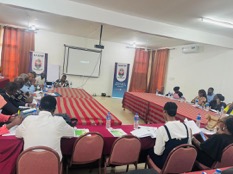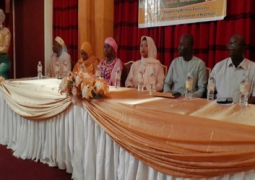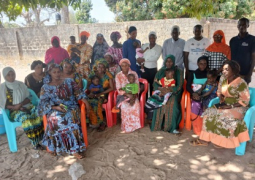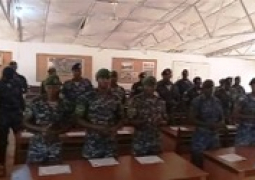
Isatou Dabo was speaking on Wednesday during a task force meeting for a National Stakeholder Consultation on the Review of the 2007 Trafficking in Persons (TIP) Act held at NANA Hall.
Further, the move comes as human trafficking continues to evolve due to changing dynamics, affecting the lives of many vulnerable individuals particularly women and children, who face harsh realities of lives that affect their quality of life.
She reminded that the TIP Act has been in existence since 2007 and has very good and impressive provision in the Act.
However, she noted that the issue of Trafficking-In Persons has evolved, adding that many offences are being committed that may fall under trafficking in persons that are not included in the TIP Act.
“Also, there are other provisions that we’ve realised in our line of work that are missing from the Act and that its presence could have helped to make our work easier.”
She revealed that apart from the criminal aspect of it or provisions that guide the investigation, conviction, and punishment of person found wanting of criminal activities relating to TIP, one would also realise that the capacity of the agency needs to be boosted in the sense that the agency needs a certain degree of authority and powers to effectively carry out its task.
“All of this, she observed can only be regulated by legislation, noting that closely looking at the TIP Act of 2007, there are so many parts and sections that need a lot of things ranging from establishment of the agency, powers of the Board, the staff of the agency, the mandate and miscellaneous provisions among a host of others, which may need to be expanded,” she added.
To that end, she observed that even though the Act has its worth, there is need to improve on existing ones to have a legislation that is broader and wider to allow them to effectively enhance cooperations with their counterparts in other countries, while at the same help them to effectively prosecute cases of human trafficking in the country.
Earlier on, Momodou Drammeh, programme coordinator NAATIP, explained that the two-day consultative stakeholder forum is meant for participants to shape a future ‘we want’ as a country especially in tackling issues relating to human trafficking.
In view of the existence of laws that guide our actions, he explained that during these two-day sessions, participants are expected to come up with a document that will shape ‘our actions, protect every one of us here and even those yet unborn.’
To that end, Drammeh challenged all participants to do justice to the forum and contribute their quota towards shaping a future ‘we all want.’





